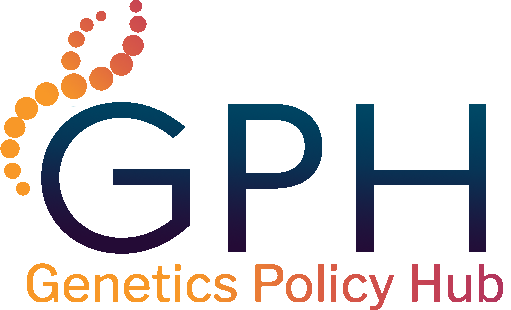From 2004 to 2024, the Health Resources and Services Administration (HRSA) funded the National Coordinating Center for the Regional Genetics Networks (NCC). NCC developed and maintained the Genetics Policy Hub.
With the conclusion of NCC funding, the Genetics Policy Hub (GPH) will no longer be updated or maintained. Information on GPH should be used for historical reference only.
Washington
This data is meant to be used for educational purposes to inform providers, patients, insurers, and state Medicaid agencies what genetic services may or may not be written into each state’s Medicaid policy. The database is not meant to indicate or imply whether a certain program will cover a specific service, since many decisions are made on a case by case basis. If you have specific questions about whether a service is covered, you should reach out to your plan administrator. Please see this disclaimer below for more information.
Medicaid Coverage Information Published
State Contact Information
Dr. Charissa Fotinos
Director
Washington Health Care Authority
626 8th Avenue, PO Box 45502
Olympia, WA 98504-5050
Phone: (360) 725-1040
HCA Medical Assistance Customer Service Center (MACSC)
Email: askmedicaid@hca.wa.gov
Phone: 1-800-562-3022
Business hours: Monday – Friday 7 a.m. to 5 p.m. (Pacific) (except state holidays)
Mailing address:
PO Box 45531
Olympia WA 98504
https://www.hca.wa.gov/free-or-low-cost-health-care/contact-washington-apple-health-medicaid
https://medicaiddirectors.org/wp-content/uploads/2023/06/Public_DirectorsList_June2023-1.pdf
General Genetic Testing Criteria
Genetic testing may be considered as medically necessary to establish a molecular diagnosis of an inheritable disease when all the following are met:
- The client displays clinical features or is at direct risk of inheriting the mutation in question (pre-symptomatic) based on family history, an analysis of genetic relationships and medical history in the family.
- Diagnostic results from physical examination, pedigree analysis, and conventional testing are inconclusive.
- The clinical utility of the test is documented in the authorization request, including how the test results will guide decisions concerning disease treatment, management, or prevention; AND these treatment decisions could
not otherwise be made in the absence of the genetic test results. - Clients receive pre- and post-test genetic counseling from a qualified professional when testing is performed to diagnose or predict susceptibility for inherited diseases.
Genetic Testing Not Covered
Based upon the review of evidence provided by HTCC, HCA (Medicaid) does not consider pharmacogenetic testing for patients treated with oral anticoagulants to be medically necessary.
Based upon the review of evidence provided by HTCC, HCA (Medicaid) does not consider pharmaceutical testing to be medically necessary (with CPT® codes 81225, 81226, 81227, and 81291) when the primary diagnosis is one of the following:
- Depression
- Mood disorders
- Psychosis
- Anxiety
- Attention deficit hyperactivity disorder (ADHD)
- Substance use disorder
Medicaid does not consider gene expression profile testing for multiple myeloma or colon cancer to be medically necessary.
Whole exome sequencing is not medically necessary for any the following:
- Uncomplicated autism spectrum disorder, developmental delay, or mild to moderate global developmental delay
- Other circumstances (e.g., environmental exposures, injury, infection, etc.) that reasonably explain the constellation of symptoms
- Carrier testing for “at risk” relatives
- Prenatal or pre-implantation testing
State Specific Definition
Genetic Services for Children
Genetic Counseling Requirement
Washington requires genetic counselors to be licensed. Genetic counselors must renew their license every year. Credentials expire on the credential holder’s birthday and may be renewed within the 90 days before the expiration date. For a full list of requirements and application materials use the following link: https://doh.wa.gov/licenses-permits-and-certificates/professions-new-renew-or-update/genetic-counselor/licensing-information
Applying to Medicaid to become a genetic counselor:
To apply to provide services, a genetic counselor must:
- Be a licensed genetic counselor with the state of Washington. The Genetic Counselor License Application Packet is on the Department of Health’s website.
- Enroll on HCA’s website as a provider for Washington Apple Health (Medicaid). Include a copy of their Washington State genetic counselor professional license with their application.
Genetic testing requires clients receive pre- and post-test genetic counseling from a qualified professional when testing is performed to diagnose or predict susceptibility for inherited diseases.
Metabolic Formula Coverage Legislation
RCW §48.20.520
RCW §48.21.300
RCW §48.44.440
RCW §48.46.510
WAC 246‐650‐991
WAC 388‐554‐ 300
Metabolic Formula Coverage & Criteria
Medicaid covers orally administered enteral nutrition products for clients age 20 and younger with amino acid, fatty acid, and carbohydrate metabolic disorders, including phenylketonuria (PKU). A copy of the Enteral Nutrition Products Prescription and Order Form (HCA 13-961), signed and dated by the prescribing provider, listing the client’s medical condition and the exact daily amount of product prescribed. At a minimum, this prescription must be renewed annually.
Prior Authorization Requirements
Certain genetic testing procedure codes need PA. Providers must obtain PA if required for certain genetic tests and must give both the PA number and the appropriate genetic testing modifier to the laboratory or when the laboratory bills so they can bill correctly.
Prior Authorization Forms
Fee Schedule
BRCA Testing Coverage
Yes, this is covered. Medicaid requires prior authorization (PA) for all breast and ovarian cancer genetic testing.
Requirements for BRCA
Client must be one of the following:
Of any age with a known pathogenic gene variant in a cancer susceptibility gene or with a blood relative with a known gene variant in a cancer susceptibility gene
Diagnosed at any age with any of the following:
- Ovarian cancer
- Pancreatic cancer
- Metastatic prostate cancer
- Breast cancer or a high grade (Gleason score > 7) prostate cancer and of Ashkenazi Jewish ancestry
With a breast cancer diagnosis meeting any of the following:
- Breast cancer diagnosed < age 50
- Triple negative breast cancer diagnosed age < age 60
- Two breast cancer primaries
- Breast cancer at any age and both of the following:
- One or more close blood relatives with any of the following:
- Breast cancer < age 50
- Breast cancer in person assigned male at birth
- Pancreatic cancer
- High grade or metastatic prostate cancer
- Two or more close blood relatives* with breast cancer at any age
*First-, second-, and third-degree relatives
Cystic Fibrosis Screening
Coverage is available.
Hereditary Cancer Testing Coverage
Coverage is available.
Lynch Syndrome Testing Coverage
Coverage is available.
Microarray Testing
Genomic microarray is considered medically necessary under the conditions outlined below.
HCA requires prior authorization (PA) when using CPT® codes 81228 and 81229 for genomic microarray to diagnose genetic abnormalities in children for
any one of the following:
- Significant dysmorphic features or congenital anomalies
- Global developmental delay or clinical diagnosis of intellectual disability
- Clinical diagnosis of autism spectrum disorder
AND all the following: - Targeted genetic testing, if indicated, is negative
- Clinical presentation is not specific to a well-delineated genetic syndrome
- The results of testing could impact the clinical management
Newborn Screening
Yes, Medicaid pays for newborn screening tests. The initial screening is typically billed through the hospital. For newborns born at a birthing center or at home, the midwife or physician collects the blood for the newborn screening and sends it to the Washington State Department of Health (DOH). The midwife or physician may bill for the blood collection using the appropriate CPT® code. DOH bills HCA for the newborn screening tests using HCPCS code S3620. HCA reimburses only DOH for this service.
Panel Testing
Based upon review of the evidence provided by HTCC, HCA considers gene expression profile testing to be medically necessary for breast or prostate cancer when the criteria in the following are met.
Gene expression profile (breast cancer) done by Oncotype Dx, Endopredict, Prosigna, or MammaPrint is covered when all the following conditions are met:
- Stage 1 or 2 cancer
- Estrogen receptor positive and Human Epidermal growth factor Receptor 2 (HER2-NEU) negative
- Lymph node negative or 1-3 lymph node(s) positive
- The test result will help the patient and provider make decisions about chemotherapy or hormone therapy
Gene expression profile (breast cancer) Breast Cancer Index is covered when all the following conditions are met:
The client must be all the following:
- HR+
- Lymph node negative (LN-) or lymph node positive (LN+) with 1-3 positive nodes
- Early stage (stage 1-2)
- Distant recurrence free
- Considering hormone/endocrine therapy
Gene expression profile (prostate cancer)done by Oncotype Dx or Prolaris is covered when the following conditions are met:
- Low and favorable intermediate risk disease as defined by the National Comprehensive Cancer Network (NCCN)
- Test result will help inform treatment decision between definitive therapy (surgery or radiation) and conservative management
Gene expression profile (prostate cancer) Decipher prostate cancer classifier assay is covered if both of the following are true:
- The client is post radical prostatectomy
- The test result will help the client decide between active surveillance and adjuvant radiotherapy.
Pharmacogenetic Testing
HCA considers companion diagnostic and certain pharmacogenetic tests to be medically necessary and may require prior authorization.
A Gene sequence analysis panel is covered only for determining eligibility for medication therapy if required or recommended in the FDA labelling for that medication, in Table One of the FDA Table of Pharmacogenetic Associations. These tests have unproven clinical utility for decisions regarding medications when not required in the FDA labeling (e.g., psychiatric, anticoagulant, opioids).
Prenatal Testing Offered
Medicaid considers Noninvasive prenatal diagnosis of fetal aneuploidy (NIPT) for serum marker screening for fetal aneuploidy to be medically necessary in pregnant clients with high-risk singleton pregnancies, who have had genetic counseling, when one or more of the following are met:
- Pregnant client is age 35 years or older at the time of delivery
- History of a prior pregnancy with a trisomy or aneuploidy
- Family history of aneuploidy (first degree relatives or multiple generations affected)
- Positive first or second trimester standard biomarker screening test for aneuploidy, including sequential, or integrated screen, or a positive quadruple screen
- Parental balanced Robertsonian translocation with increased risk for fetal T13 or T21
- Findings indicating an increased risk of aneuploidy
Whole Exome Sequencing
Washington Medicaid considers whole exome sequencing (WES) to be medically necessary for the evaluation of unexplained congenital or neurodevelopmental disorders in a
phenotypically affected individual when ALL the following criteria are met:
- A board-certified or board-eligible medical geneticist, or an advanced practice nurse in genetics (APGN) credentialed by either the Genetic Nursing
Credentialing Commission (GNCC) or the American Nurses Credentialing Center (ANCC), who is not employed by a commercial genetic testing laboratory, has evaluated the patient and family history, and recommends or orders, or both, the test. - A genetic etiology is considered the most likely explanation for the phenotype, based on EITHER of the following:
- Multiple abnormalities affecting unrelated organ systems (e.g., multiple
congenital anomalies) - TWO of the following criteria are met:
- Significant abnormality affecting at a minimum a single organ system
- Profound global developmental delay or intellectual disability
- Family history strongly suggestive of a genetic etiology, including consanguinity
- Period of unexplained developmental regression (unrelated to autism
or epilepsy) - Biochemical findings suggestive of an inborn error of metabolism
where targeted testing is not available
- Multiple abnormalities affecting unrelated organ systems (e.g., multiple
- Other circumstances (e.g., environmental exposures, injury, infection, etc.) do not reasonably explain the constellation of symptoms.
- Clinical presentation does not fit a well-described syndrome for which singlegene or targeted panel testing (e.g., comparative genomic hybridization
[CGH]/chromosomal microarray analysis [CMA]) is available. - The differential diagnosis list or phenotype warrant testing, or both, of multiple genes and ONE of the following:
- WES is more efficient and economical than the separate single-gene tests or panels that would be recommended based on the differential diagnosis
(e.g., genetic conditions that demonstrate a high degree of genetic heterogeneity). - WES results may preclude the need for multiple invasive procedures or screening that would be recommended in the absence of testing (e.g.,
muscle biopsy).
- WES is more efficient and economical than the separate single-gene tests or panels that would be recommended based on the differential diagnosis
- A standard clinical work-up has been conducted and did not lead to a diagnosis.
- Results will impact clinical decision-making for the individual being tested.
- Pre- and post-test counseling is performed by an American Board of Medical Genetics-certified or American Board of Genetic Counseling-certified genetic counselor.
Other Tests Covered
Per NCCN guidelines for diagnosis of thyroid cancer, HCA considers molecular gene analysis of thyroid nodules that have been determined as “inconclusive” after fine needle aspiration to be medically necessary
when all of the following criteria are met:
- Clients with one or more thyroid nodules with a history or characteristics suggesting malignancy such as:
- Nodule growth over time
- Family history of thyroid cancer
- Hoarseness, difficulty swallowing or breathing
- History of exposure to ionizing radiation
- Hard nodule compared with rest of gland consistency
- Presence of cervical adenopathy
- Have an indeterminate follicular pathology on fine needle aspiration
Covered once per client, per lifetime. A second test may be requested through the PA process for a second, unrelated thyroid nodule with indeterminate pathology.
Medicaid covers genetic counseling for all fee-for-service adults and children when performed by a physician.
- To bill for prenatal genetic counseling, use ICD diagnosis code Z31.5 and the appropriate E/M code.
- To bill for genetic counseling other than prenatal, use ICD diagnosis code Z71.83 and the appropriate E/M code.
Medicaid also covers genetic counseling (CPT 96040) when performed by a health care professional appropriately credentialed by the Department of Health (DOH).
Genetic counselors who meet the requirements in chapter 246-825 WAC are eligible to enroll with HCA to provide and receive payment for providing prenatal genetic counseling services. Genetic counselors must be approved by the Department of Health (DOH) Screening and Genetics Unit and be supervised by a practicing licensed physician.
Medicaid covers:
- In-person or audio-visual telemedicine encounters only.
- One initial prenatal genetic counseling encounter. This encounter must be billed in 30-minute increments and cannot exceed 90 minutes.
- Two follow-up prenatal genetic counseling encounters per pregnancy. The encounters must occur no later than 11 months after conception. These encounters must be billed in 30-minute increments and cannot exceed 90
minutes.
Prenatal procedures other than genetic counseling, such as laboratory or diagnostic testing, must be requested directly through the client’s primary care provider (PCP) or PCCM.
Targeted genomic sequence analysis panel is covered if one of the following are true:
- The requested testing is a companion diagnostic test per the FDA label for the member’s cancer type and specific treatments being considered
- At least five tumor markers included in the panel individually meet criteria for the tumor type based on one of the following:
- All criteria are met from a testspecific guideline if one is available
- An oncology therapy FDA label requires results from the tumor marker test to use the therapy effectively or safely for the member’s cancer type
- NCCN guidelines include the tumor marker test in the management algorithm for that particular cancer type and all other requirements are met (e.g., specific pathology findings, staging); however, the tumor marker must be explicitly included in the guidelines and not simply included in a footnote as an intervention that “may be considered”
- Targeted genomic sequence analysis panel is covered when both of the following are true:
- Client has a confirmed diagnosis of Hepatitis B Virus infection based on positive HBsAg, Anti-HBs antibody, or Anti-core antigen (anti-HBc) antibody test
- The result must be used to monitor response to treatment
- Gene sequence analysis panel is covered when the client must:
- Be clinically diagnosed with IBMFS and used for diagnostic, not screening, purposes
- Have a history of unexplained cytopenias
- Have a family history of similar cytopenias, AA, MDS/AML, or clinical stigmata of the IBMFSs
- Have a prenatal diagnosis of an at-risk fetus, after confirmation of variant(s) in the parent(s).
Must not be used for carrier testing unless one partner is a known carrier.
Other Information
Resources
Newborn Screening Reimbursement

Disclaimer: The information contained in the database has been obtained from sources believed to be reliable but NCC has not attempted to validate or confirm the information. The database may be updated periodically. However, the accuracy and completeness of the information contained in the database cannot be, and is not, guaranteed. NCC makes no warranty of the accuracy, completeness or timeliness of this information, and shall not be liable for any decision made in reliance on this information. It is the user’s responsibility to verify this information by contacting the state Medicaid agency directly.
The database contains links to third-party websites. These links are provided solely as a convenience to users and not as a guarantee, warrantee, or recommendation by NCC of the content on such third-party websites or as an indication of any affiliation, sponsorship or endorsement of such third party websites. NCC is not responsible for the content of linked third-party sites and does not make any representations regarding the privacy practices of, or the content or accuracy of materials on, such third-party websites. If you decide to access linked third-party websites, you do so at your own risk. Your use of third-party websites is subject to the terms of use for such sites.

